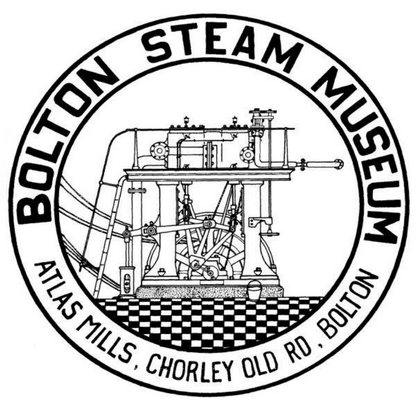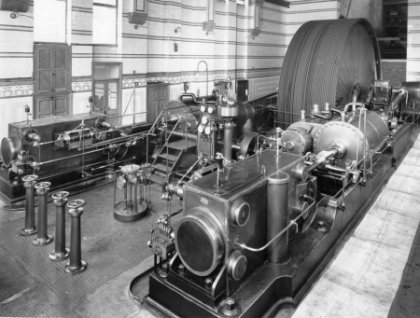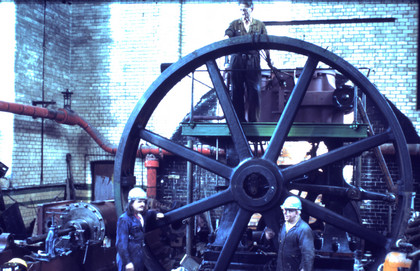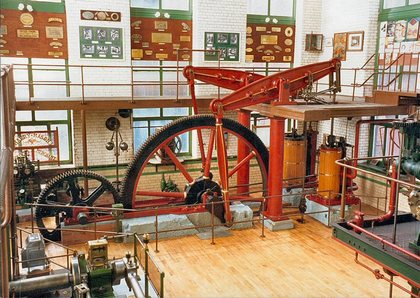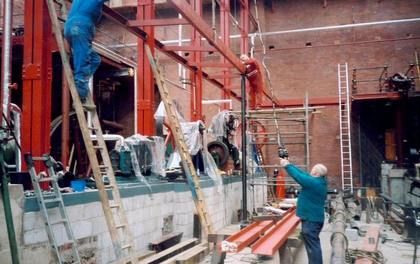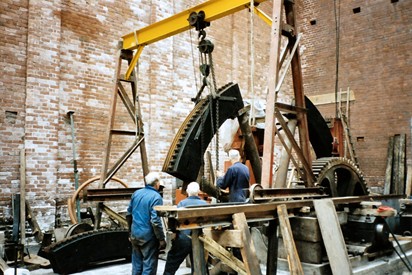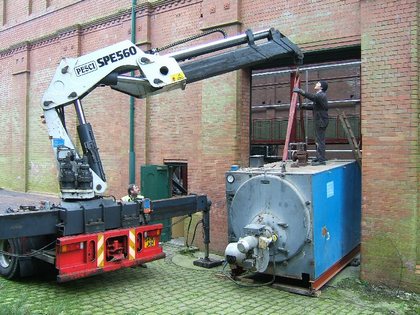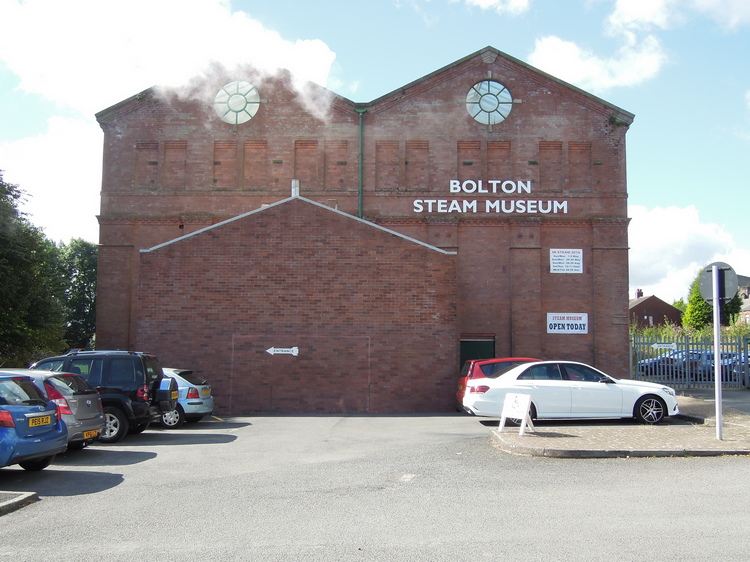our history
A society that started as a group of like minded individuals wanting to preserve their rapidly disappearing heritage has turned into one of the largest museums of engines in Europe.
A meeting in a Rochdale pub!
The NMES was formed in 1966 by a small but extremely dedicated band of enthusiasts who decided that something had to be done to preserve the steam engines from the textile industries of Lancashire and Yorkshire before they were all scrapped
The First Museum
With the generous support of the Mason family, the site owners, the Society was very grateful to be offered premises at Atlas Mills, Mornington Road, Bolton, where the rebuilding of the engines could begin.
Open
After some 15 years work, the first museum was opened to the public in one of the engine-houses of Atlas No 3 Mill. Five of the rebuilt engines could be seen working in steam. It was decided to call the museum The Bolton Steam Museum and over the following 7 years it became a well-known attraction in the area.
Disaster?
The mill complex was sold for redevelopment as a retail supermarket and the museum was in the way. However, the new owners, William Morrison Supermarkets PLC, were very sympathetic to the Society's plight and undertook to relocate the museum into another building on the far side of the site. Unfortunately, this meant dismantling all the engines, moving all the parts into the new building and beginning the rebuilding work all over again.
Cotton Store
The Society now had the security of a long lease and could start reassembling its collection - which has now grown to some 27 engines - in the new premises. The new building is ideal for the museum, with plenty of natural lighting and full crane coverage to assist with moving and assembling the heavy engine parts
Boiler House
In 2006 a new boiler-house was built and a boiler installed so that the engines could be demonstrated working in steam on regular Steam Days (see Events). At other times, five of the engines can be shown in motion under electric drive, so that visitors can appreciate some of the engineering of these magnificent machines
Now
An application was made to the National Lottery for funds to help develop the museum, but both this and other appeals for grant-aid have fallen on deaf ears. The Society's small band of volunteers have therefore been working largely unaided to return the engines to a fully operational condition. An extraordinary amount has been achieved without the benefit of any external financial support, either locally or nationally, relying on donations and goodwill from local companies to fund the development.
The Society's collection of steam engines now represents one of the largest in the UK.
